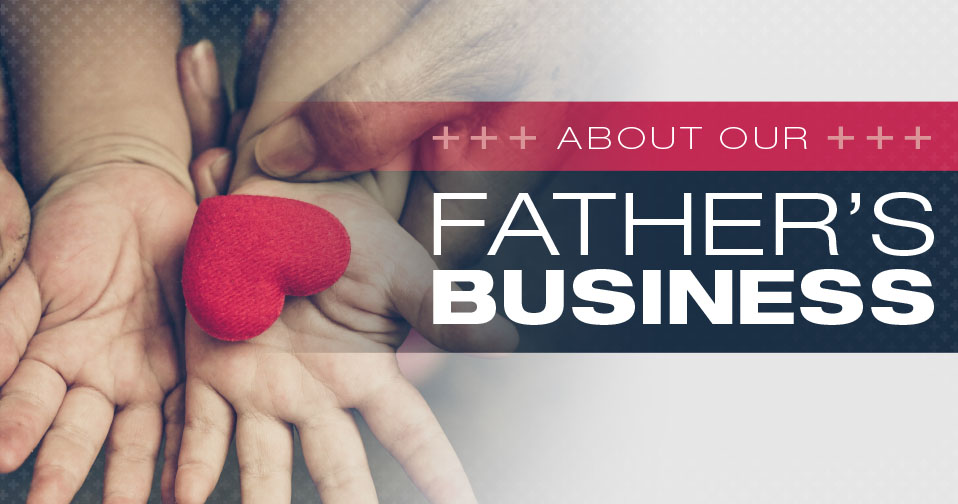Jess Correll: Stewarding The City

When most of us think of stewardship, we envision tithe envelopes and checks written to charity. But for Kentucky banker and difference-maker, Jess Correll, stewardship is a daily practice of personal responsibility and neighborly love woven deeply into every area of life, not just finances.
Jess and his wife and business partner, Angela, are on a mission to be wise stewards of the rural place where they live—from the land, to the buildings in their small historic town of Stanford, Kentucky, as well as their banking and hospitality businesses that create a viable local economy. They are attempting to quietly shape a culture around them by creating spaces where the peace of God permeates the community.
But Jess wasn’t always a man in pursuit of peace. As a natural born salesman with big dreams and ideas, Jess decided to pursue wealth when he was young. “When I was 19, I sat down with my little brother, Vince, who was 17 at the time, and we decided to be the richest men in Kentucky.” With the help of his father, also a businessman, he bought his first bank at the age of 26.
Over the next decade, Jess and his partners formed First Southern Bancorp and continued to invest in real estate and insurance companies. By his mid-thirties, Jess was well on his way to achieving his goal of becoming a wealthy man, when several life events happened that caused him to reevaluate everything.
Jess explains, “My marriage blew up in my face, primarily because I was too dedicated to work.” With three young children, Jess’ divorce became a defining moment in his life. “I realized that I had a real problem when the person who knew me the best, liked me the least,” Jess says.
We’ve built our lives around the pillars of stewardship, hospitality, and excellence.When we live these values, we are expressing love for our neighbors and for the Lord. We don’t have to put a fish on the door, or go out and say, ‘We’re Christians and we’re doing this for whatever reason.’ I hope people will know us by our reputation for love.” Angela Correll
Another blow came when his brother, Vince was diagnosed with a brain tumor, and eventually succumbed to cancer in 1996. “My brother was a sacrificial giver,” says Jess. “Along with my father, Vince was one of the biggest influences on my life regarding giving. Seeing the impact that Vince had in his life through generosity really made me rethink my priorities.”
In the early 90’s, Jess began a personal transformation that ultimately transformed his company, his community, and his relationships. It was during this time that he was blessed to meet Angela. “Jess and I met on a blind date and I was very hesitant at first,” says Angela. “After all, he was divorced with three kids, and I was a single career woman. But after awhile it became apparent that God had His hand in our relationship.” Jess adds, “Today, we are both our closest advisors. Our marriage is a real partnership, and that is absolutely invaluable.”
A key factor in Jess’ perspective on stewardship came about through Crown Financial Ministries. Jess and his closest business partners at First Southern National Bank went through a Crown small group bible study, learning the biblical perspective on money and possessions. The impact of that study completely changed how Jess operated his company, and his personal view of generosity.
Jess and his partners began to tithe their corporate earnings. They formed the River Foundation in 1991 and later partnered with the National Christian Foundation, a nonprofit that inspires biblical generosity and mobilizes resources through wise giving solutions for business owners and families, like the Corrells.
Today, First Southern contributes 10 percent of its pre-tax profit to the River Foundation. It's primary focus is supporting initiatives that impact the culture in their banking communities, and the efforts of other ministry partners who work with children and youth in Ethiopia and India.
Jess explains, “When Shadrach, Meshach, and Abednego were taken to Babylon, they were encouraged to not just do well as Israelites, but for the city as well. We think that part of our responsibility is to do things that promote the well-being of our city and the places we inhabit.”
So even though First Southern has grown to $1.2 billion in total assets, they are still headquartered in Stanford, Kentucky (population 3,500), where they began 33 years ago.
This philosophy of stewarding their space has led Jess and Angela down some very interesting paths, including: renovating the original buildings and storefronts in downtown Stanford, where the bank is located; creating Kentucky Soaps & Such, a shop that features local goat milk soap and other handcrafted Kentucky products; partnering with chef Bill Hawkins to open the Bluebird, a locally sourced organic farm-to-table restaurant; and restoring the Wilderness Road Guest Houses, quaint Victorian homes and rooms where visitors can stay to experience the simpler way of life in this small town.
Angela explains, “When we talk about stewardship, it’s not just money at all. Money is a piece of it, but we’re stewarding a way of life and all the values and physical spaces that go into sustaining it. When we preserve a historic building, we’re stewarding the labor that went into it 100 years ago when it was built, and the craftsmen who poured their hearts into it back then.”
“Through the restaurant, it’s stewardship of the land, and the animals, and the produce that grows on the land, as well as the health of our bodies. And it’s stewardship of our local economy, because we’re trying to promote local artisans, local farmers, and local craftspeople, so it’s stewarding their resources well and promoting economic sustainability.”
Jess adds, “All the things that we’re talking about are things that would satisfy your economics teacher and your Sunday school teacher. It seems cheaper to knock down old buildings and throw up something new, but our society is constructing things that won’t even last as long as the mortgage. And what have we invested in? New construction is 70 percent materials, 30 percent labor, while restoration is just the opposite. It makes more sense to invest in people and create things that will establish the work of their hands for generations to come.”
Jess and Angela both feel that at the heart of all these diverse efforts is love. “We’ve built our lives around the pillars of stewardship, hospitality, and excellence,” says Angela. “When we live these values, we are expressing love for our neighbors and for the Lord. I hope people will know us by our reputation for love. We don’t have to put a fish on the door, or go out and say, ‘We’re Christians, and we’re doing this for whatever reason.’ ”
And Jess believes that taking personal responsibility is the key to changing culture and making an impact, especially for Christian business owners. “I think so many times we see wrongs, and we don’t think we should be the one to right them. And I struggle with that,” says Jess. “But I don’t waste my time on things that I can’t influence. I don’t watch any TV, and I never watch the news. I want to focus on being part of the solution and run our businesses in a way that is unique.”
He says it’s not hard to find ways for your company to be unique when you are focused on caring for people. For example, the CEO of their insurance company, Jimmy Rousey, realized that they had a great opportunity to comfort the customers of the life insurance company. Instead of just mailing checks to the beneficiaries of their policies, they now include a memory book to honor the person that has died. “Such a simple act has had a profound effect, and it reminds us as a company that our customers are grieving, and we should be there for them,” says Jess.
As they remember the legacy of their customers, Jess and Angela are also thinking about the legacy that they hope to create for future generations of Kentuckians. Angela sums it up this way: “The southern part of our county is considered part of Appalachia, where there is a very high level of poverty. Every afternoon during the school year, almost 30 school buses come from the high school headed right down Main Street."
“I love it, because I see kids from these rural areas looking out the window, seeing all this change. They may come from a challenging background or a hopeless situation, but if they can ride through here and see life and beauty, I’m praying that it will make a difference. They see hope. For me, that is a wonderful gift. There’s no way to measure that.”

By: Sheila Dolinger
Based in Atlanta, GA, Sheila Dolinger is a communications consultant and contributing writer for the National Christian Foundation (NCF), the world’s largest grant-making ministry for Christian givers. For more information, visit www.nationalchristian.com.






